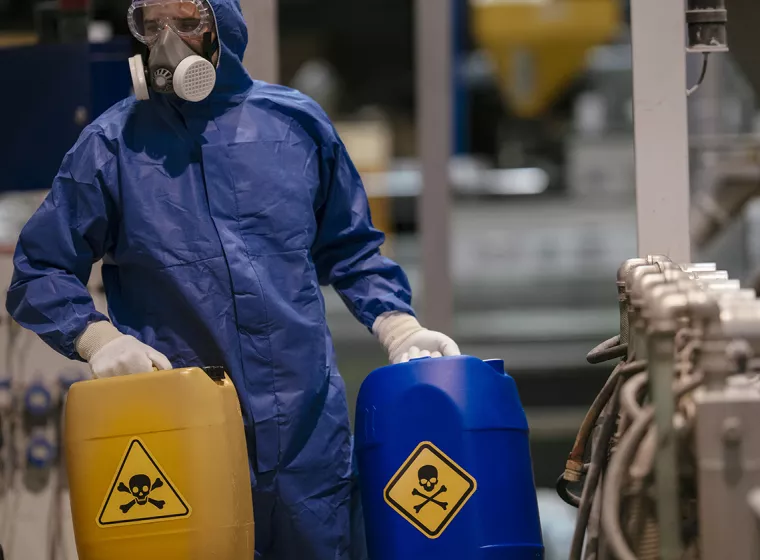Leverage regulated chemical expertise to achieve pesticide registration.
Pesticides are substances used to help control or kill organisms that we consider pests, including insects, fungi, weeds, microbes, and nuisance animals (worms, mollusks, rodents), that may be sources of disease or can destroy agricultural crops or property. Pesticides may be called by various names, for example, insecticides, fungicides, herbicides, bactericides, antimicrobials, nematicides, molluscicides, or rodenticides, to name a few — depending on their use and target organisms.
Because of their widespread use and potential for effects on health, pesticides are one of the most highly regulated chemical classes. In the U.S., all pesticides must be registered with the U.S. Environmental Protection Agency (EPA) and meet minimal risk criteria. Similarly, many pesticides used as plant protection products in Europe are regulated by the European Commission. In both cases, pesticide registration requires significant safety testing, including study of the potential for a pesticide to cause acute or chronic toxicity, neurological effects, reproductive or developmental effects, and cancer. The possible sensitivity of children and potential for endocrine disruption also need to be addressed. Safety toxicity data, along with information on anticipated use and exposure patterns, are considered in the overall pesticide registration process.
Exponent's team includes scientists with considerable regulatory experience as senior scientists/directors at the U.S. EPA, who have planned, conducted, and coordinated regulatory guideline-based safety studies to investigate the potential for toxins in pesticide products. We are also proficient in the interpretation of study data as it relates to risk/safety assessment, endocrine disruptor screening, and quantitative benchmark dose analysis, and to address questions with implications related to chemical regulation (e.g., application of the FQPA/PCPA factors and classification in Europe).
Services
For 50+ years, we’ve thrived on solving unstructured problems that require bespoke solutions. Some of our services include:
• Planning, conducting, and coordinating safety studies
• Interpretation of study data related to risk/safety assessment
• Endocrine disruptor screenings
• Quantitative benchmark dose analysis
• Pesticide program development and directing
• Risk management proposal
Our Capabilities Are Unparalleled
With expertise in over 90 disciplines and hundreds of capabilities, tools, and methodologies — we get to the root of even the most complex challenges and give you the objective answers you need.
![Consumer Products [PSMC]](/sites/default/files/styles/cards_home_card/public/media/images/GettyImages-171366863.jpg.webp?itok=0YQ9vN1U)
Food
Food safety, nutrition, and dietary exposure assessments, and technical and regulatory support.

Biocides & Antimicrobials
Expertise in multifaceted regulatory requirements in biocide and antimicrobial product approval processes.

Agrochemicals & Pesticides
Navigate complex requirements for agrochemicals and pesticides in Europe and North America.

Consumer Products: Cosmetics & Personal Care
Personal care products consulting for registration, notification targets, and product development.

Industrial Chemicals
Regulatory support for chemicals, solvents, polymers, antimicrobials, biocides, and more.
Experts
Our global and comprehensive expertise across industries gives us a deep understanding of current challenges, best industry practices, and the implications of emerging technologies.
![Ag-Chem in the EU [CRFS]](/sites/default/files/styles/hero_purple/public/media/images/GettyImages-1201461261_0.jpg.webp?itok=qaR56maD)

